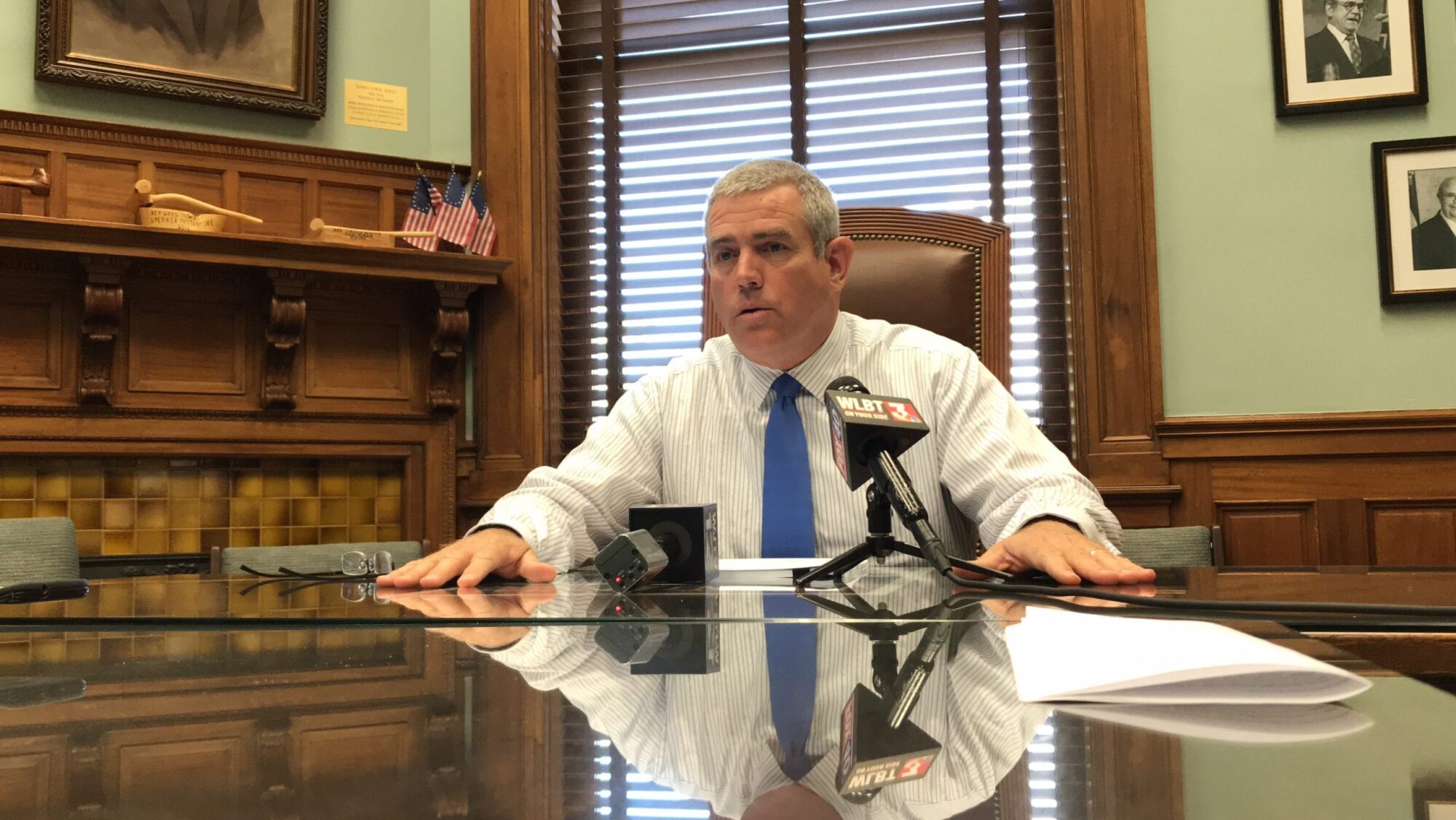
The pressure is clearly on for lawmakers to come to an agreement on the best way to move forward with the infrastructure needs of the state. On Thursday Speaker of the House Philip Gunn told a room full of reporters that the House would be presenting a new plan to the Senate that will put in place a long term solution to the road, bridge, water and sewage needs of communities all across the state.
“We have not stopped, have not rested, in the House of Representatives since session ended two weeks ago. We immediately hit the ground running and working on other proposals,” said Speaker Gunn. “We have crafted and drafted a new proposal that incorporates a lot of ideas that we have had in the past and it takes some of the ideas we have heard in other places and puts them in a bill.”
The bill will be delivered to the Lt. Governor, and Governor’s office for the start of discussions. As a side note, the Governor has said he will not call a special session until lawmakers show they have come to an agreement on a plan.
Here are some of the main points of the bill:
- The bill encompasses much of House Bill 722, which takes existing dollars and puts them towards infrastructure (roads, bridges, water, sewer). This bill does not raise any taxes.
- Currently the Use Tax in Mississippi brings in roughly $315 million yearly. Legislature would take 35% of that money or $110 million and divide it up: 15% ($47 million) to cities, 15% ( $47 million) to counties and the remaining 5% ($16 million) would go to LSBP program permanently. Total revenue impact after total phase in would be about $175 million.
- Tax Swap: This would be the phase out of the 4% income bracket and raising of gas and diesel taxes in an equal amount. It would phase in over four years and within the first year the 4% bracket would be dropped to 3% and raise the gas tax $.02. The 4% currently generates roughly $160 million yearly, phased out it’s about $40 million a year. With the $.02 raise of gas tax it will generate about that much over 4 years. This is an equal swap, it does not create any new tax. At the end of the phase in would raise the gas tax to $.08.
- Creation of the SIIF Fund, Strategic Infrastructure Investment Fund. If at the end of the year there was an unencumbered cash balance 1% ($55 – $60 million) of the budget would be put into this fund for long term infrastructure project or matching federal dollars. The total impact could be up to $300 million for five years.
- Creation of the Emergency Road Bridge Repair Fund. It is designed to bond $150 million over five years from the Gaming Sinking Fund for emergency projects. That comes out to about $30 million a year.
- $50 million in bonds also funding for immediate road and bridge projects from the Gaming Sinking Fund.
House Transportation Ideas by yallpolitics on Scribd
“We think this is a solution, we think this is a great policy solution to solving our road and bridge issue. It takes money from existing dollars there is no tax increase here,” said Speaker Gunn.
Speaker Gunn said the main reason for a phase in of this plan is to help the state absorb the cost more easily. The Speaker said he does not anticipate to see any budget cuts in the future to supplement the plan, since revenue growth would only have to increase about 1% yearly.
“This money belongs to the citizens. These are citizens dollars. They expect us to use them for the things that matters to the citizens, roads is one of those things. This is not the legislature’s money, it belongs to the citizens,” said Speaker Gunn.
He said he is optimistic on the Senate’s response to the proposal.











